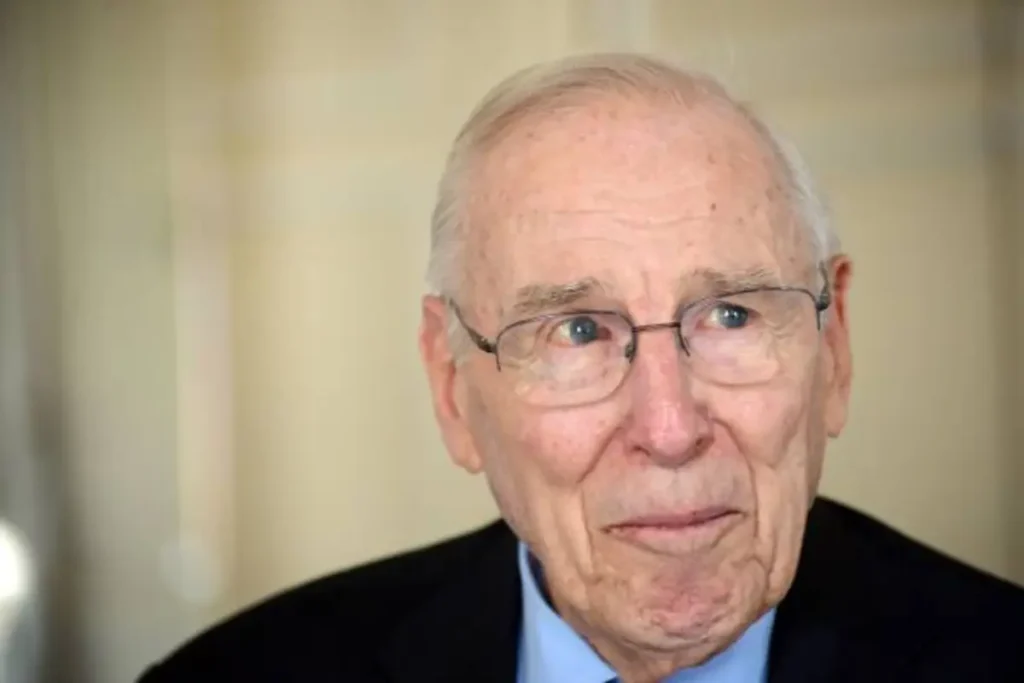
Jim Lovell, Apollo 13 commander and Apollo 8 pilot, is a retired NASA astronaut and U.S. Navy captain. Marc Charuel/Gettyimages
His contributions to space exploration remain a significant part of NASA’s history, symbolizing human resilience and ingenuity in the face of crisis.
Jim Lovell’s Role in the Apollo 13 Mission and Space Exploration
Jim Lovell’s leadership during the Apollo 13 mission solidified his place among NASA’s most respected astronauts. When an oxygen tank explosion disabled their spacecraft approximately 200,000 miles from Earth, Lovell’s calm and decisive command was crucial to the survival of his crew.
Apollo 13, originally aimed at a Moon landing, became a mission focused on safe return, underscoring Lovell’s critical role in managing an unprecedented space emergency.
His ability to collaborate closely with Mission Control allowed the crew to conserve power, manage life-support systems, and navigate back to Earth despite the damaged command module.
The successful return of Apollo 13 transformed what could have been a tragedy into a testament to human ingenuity and teamwork.
The Apollo 13 Mission and Jim Lovell’s Critical Leadership
The Apollo 13 mission launched on April 11, 1970, with Lovell commanding alongside Jack Swigert and Fred Haise.
The explosion that crippled their spacecraft was followed by swift action to power down the command module and utilize the lunar module as a lifeboat—an unplanned maneuver that Lovell and his crew executed under immense pressure.
Flight controllers on Earth devised solutions to critical challenges including navigation, power management, and carbon dioxide removal, enabling the crew to survive the four-day ordeal.
Their safe splashdown on April 17 was broadcast globally, making Apollo 13 a defining moment in spaceflight history.
Jim Lovell’s Early Life and Career Leading to NASA
Born in 1928 in Cleveland, Ohio, Lovell developed an early fascination with aviation. His career in the US Navy, where he trained as a fighter pilot, laid the foundation for his selection in NASA’s 1962 astronaut class.
His early space missions, including Gemini 7 and Gemini 12, proved vital in testing human endurance and extravehicular activity, critical components of the Apollo lunar program.
In 1968, Lovell was command module pilot on Apollo 8, the first mission to orbit the Moon. The crew’s view of Earthrise became an iconic image symbolizing humanity’s place in the cosmos.
Legacy Beyond Apollo Missions
After retiring from NASA and the Navy in 1973, Lovell remained engaged with the aerospace community through public speaking and writing. His memoir, Lost Moon: The Perilous Voyage of Apollo 13, was the basis for the acclaimed 1995 film Apollo 13, which brought his story to a wider audience. Lovell’s career has inspired countless individuals and continues to represent the highest standards of astronautical excellence.
His death marks the loss of a pioneering figure whose leadership in spaceflight demonstrated the power of human determination and collaboration. NASA’s acknowledgment of his historic contributions reflects the enduring impact of his work on space exploration.
For official NASA details on the Apollo 13 mission and Jim Lovell’s biography, the agency provides comprehensive records and remembrances.



